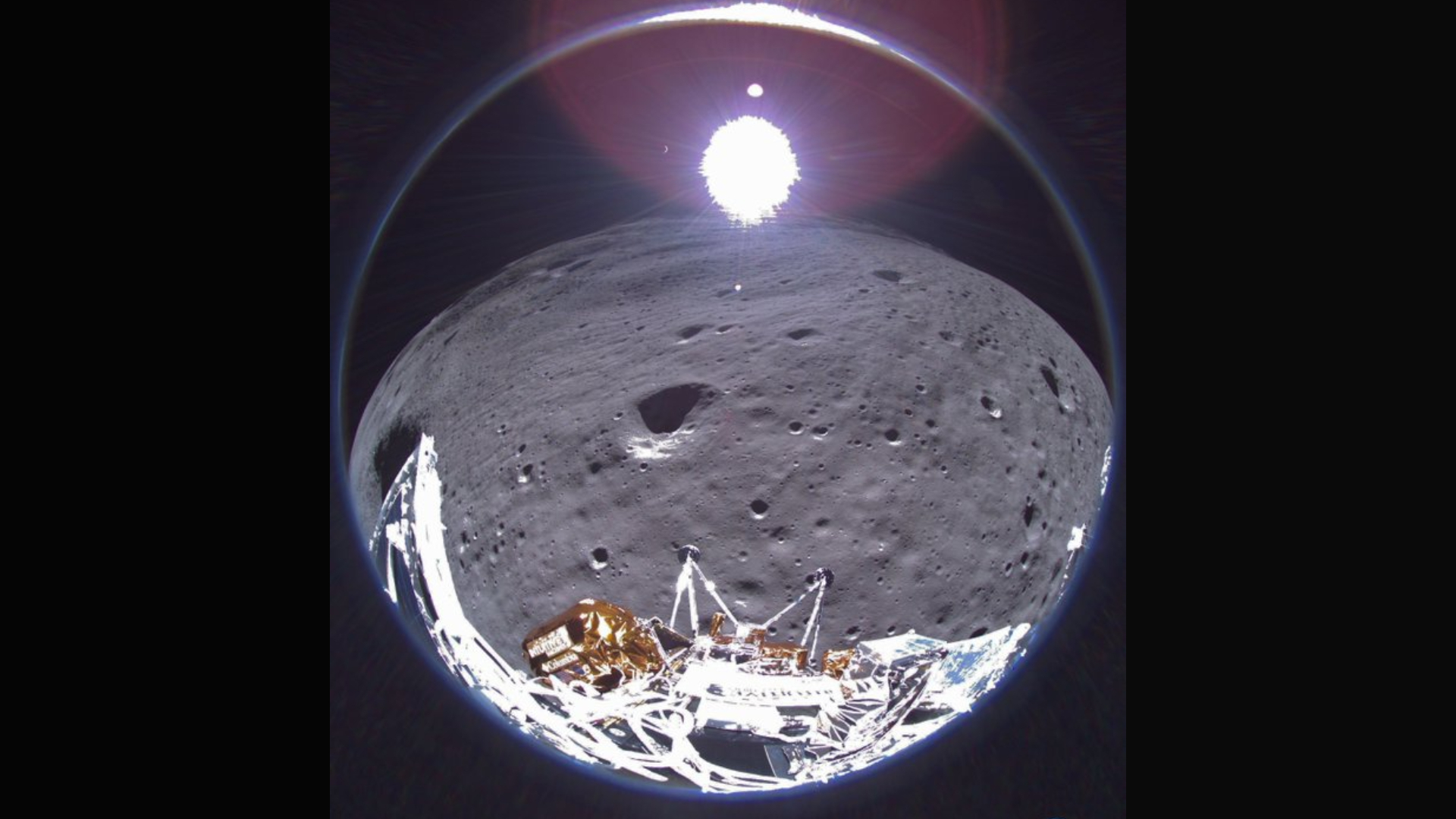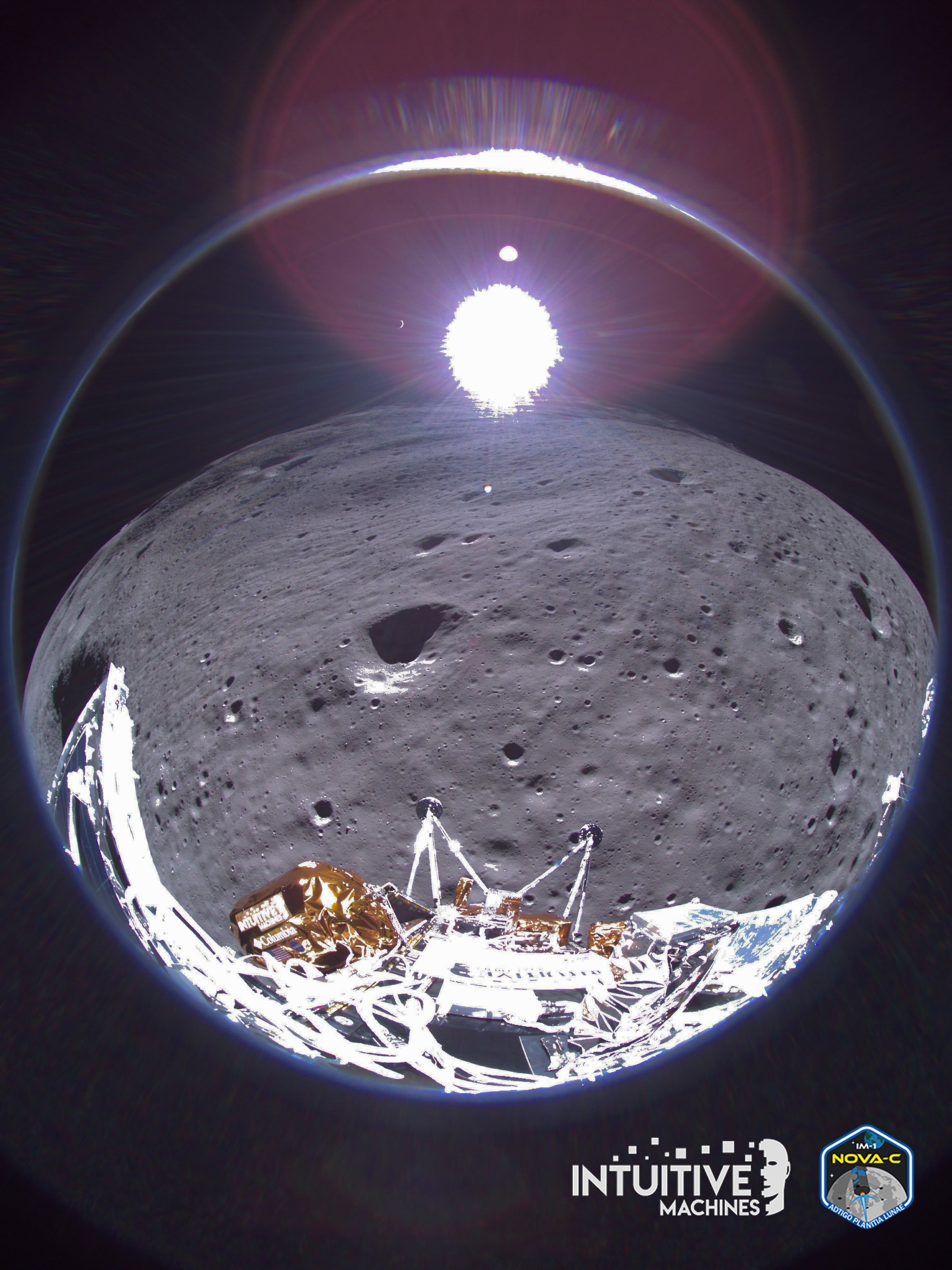'Goodnight, Odie': Odysseus, the 1st US moon lander since Apollo, shares farewell image after lunar face-plant
The Odysseus lander powered down yesterday as it braces for two weeks of lunar night. This farewell image may be its last.

The Odysseus lander has sent back a final image from the moon's surface in a "farewell transmission" before it plunges into the lunar night.
The first U.S. spacecraft to land on the moon in 50 years has fallen silent just one week after touching down.
The lander, built by Houston-based company Intuitive Machines, arrived at the lunar south pole at 6:23 p.m. EST on Feb. 22, making it the first U.S. lander to park on the moon since Apollo 17 in 1972.
But Odysseus' journey wasn't without its trials. First, a malfunction with the craft's landing lasers forced it to use a backup, and the lander then snapped one of its six legs upon touchdown, causing it to fall and bump its head against a rock.
Now, as lunar night approaches, flight controllers have ordered the face-planted craft to power down. Two to three weeks of bitter cold and darkness lie ahead. Without any sunlight striking the tipped spaceship’s solar panels, it's far from certain it will reawaken.
Related: Intuitive Machines moon lander beams home stunning photos of Earth from space
Odysseus sent one last photo to Earth before it powered down.
Get the world’s most fascinating discoveries delivered straight to your inbox.
"Before its power was depleted, Odysseus completed a fitting farewell transmission. Received today, this image from February 22nd showcases the crescent Earth in the backdrop, a subtle reminder of humanity’s presence in the universe," Intuitive Machines wrote on X, formerly known as Twitter, on Thursday (Feb. 29) alongside the lander's possibly final photo. "Goodnight, Odie. We hope to hear from you again."
"I think what we're going to do is kind of tuck Odie in for the cold night of the moon and see if we can't wake him up here when we get a solar noon here in about three weeks," Intuitive Machines CEO Steve Altemus said at a news conference on Wednesday (Feb. 28).
Odysseus launched atop a SpaceX Falcon 9 rocket from NASA's Kennedy Space Center in Cape Canaveral, Florida on Feb. 15 and entered lunar orbit on Feb. 21. It completed one tight loop above the lunar surface before slowing for landing with a few well-timed engine bursts.
The lander arrived close to the Malapert A crater at the lunar south pole. The region has long tantalized scientists because it contains water ice, which could one day be broken down into hydrogen and oxygen for rocket fuel, according to NASA.
The Odysseus mission is part of NASA's Commercial Lunar Payload Services program, which the space agency established to incentivize the development of private-sector lunar landers. NASA intends to contract these companies to transport cargo and scientific equipment to the moon.

Ben Turner is a U.K. based writer and editor at Live Science. He covers physics and astronomy, tech and climate change. He graduated from University College London with a degree in particle physics before training as a journalist. When he's not writing, Ben enjoys reading literature, playing the guitar and embarrassing himself with chess.
 Live Science Plus
Live Science Plus






